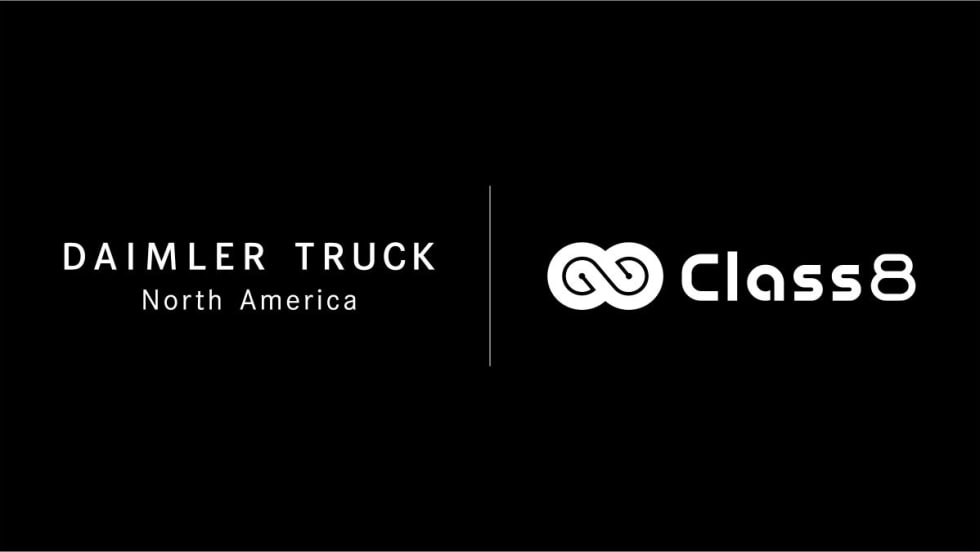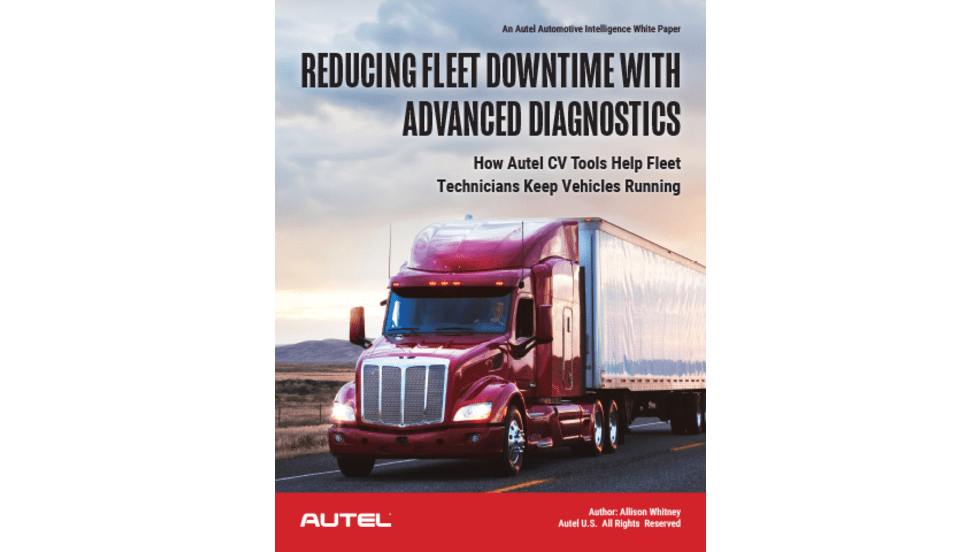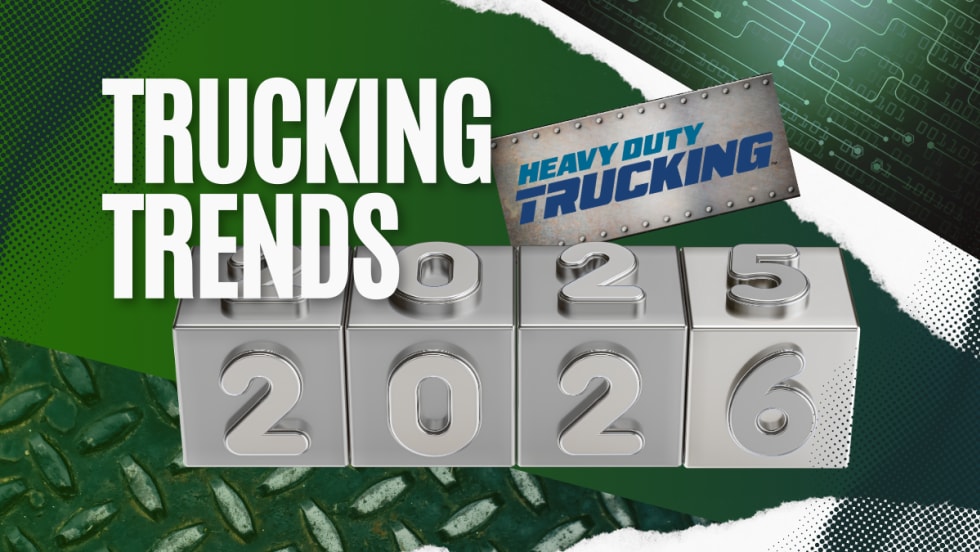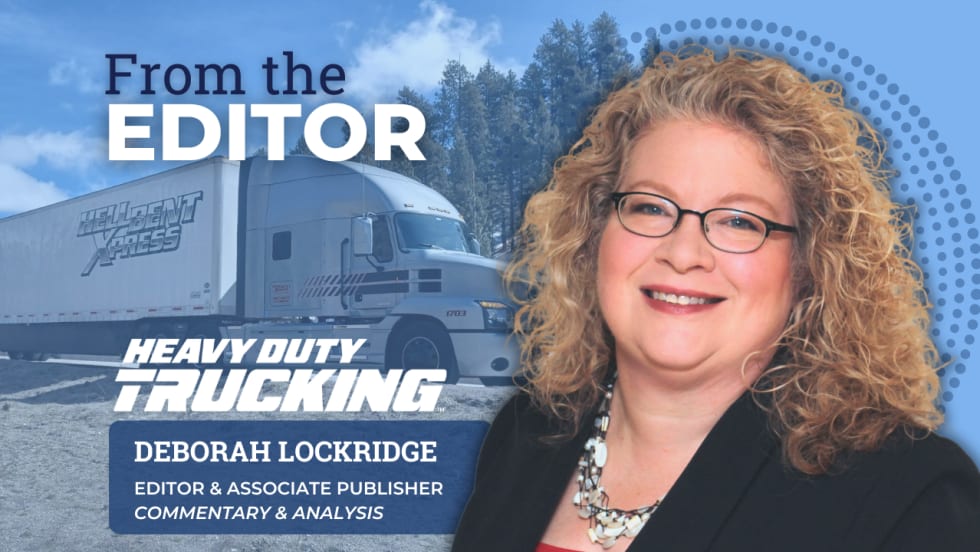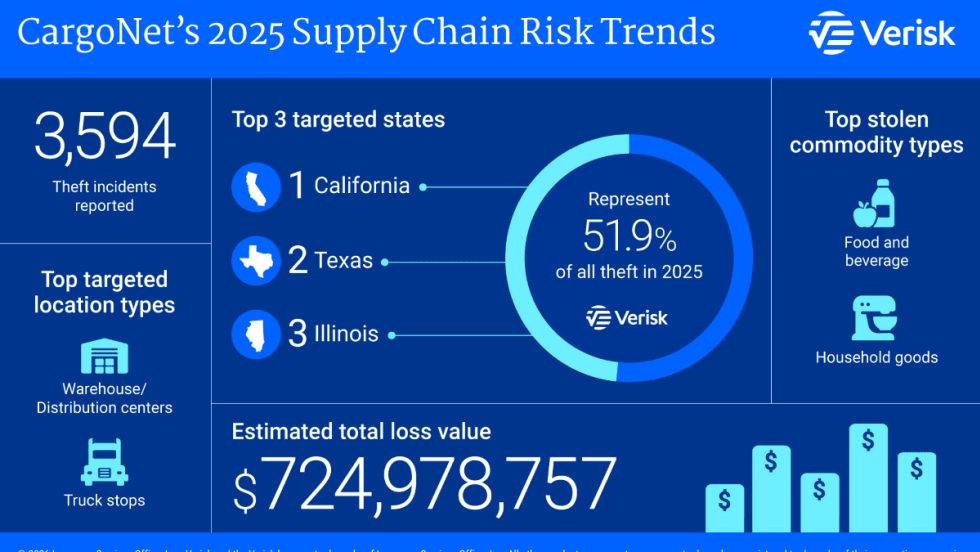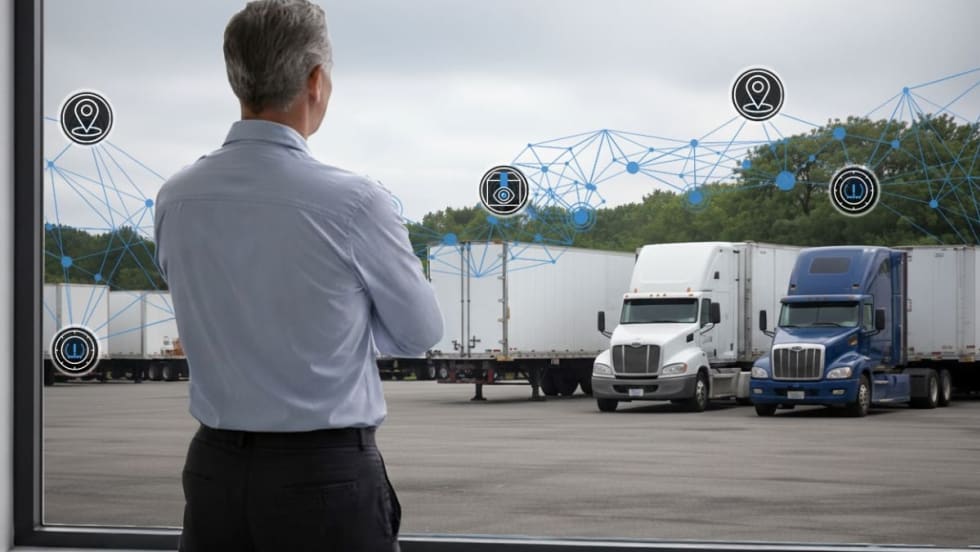A line for a women’s public restroom is not an uncommon sight — unless you’re at a trucking conference. It’s an industry where men have long outnumbered women, whether in boardrooms or behind the wheel. So I wasn’t the only one to be taken aback when I was confronted by just such a line in San Diego during the American Trucking Associations’ Management Conference and Exhibition in late October.
I see that line as a sign of progress, along with the numerous mentions of the need to bring more women into the industry during several sessions. A Sunday luncheon discussion was devoted to women leaders in trucking.
During that panel discussion, Cari Baylor, president of Baylor Trucking, took issue with the terminology often used in describing the challenge. “I want to encourage the audience to stop using the term ‘male-dominated’ when it comes to trucking. In our industry, in our news, in our marketing, let’s expire that term — because we’re here,” she said, gesturing to the women on stage.
I was a little taken aback by that. I’ve seen incredible progress since I started covering this industry more than 30 years ago, but there’s little question that men still represent a large majority of the industry.
Upon further reflection, the word “dominance” is not just about the numbers. It’s also about control, about a situation where men have most of the power and influence. Just because there are more men than women in the industry or in a company does not automatically mean that men “dominate.” I feel confident that companies such as Baylor, or Brenny Transportation, or ArcBest, which have women at the helm, are not “dominated” by men even if women are a minority of the workforce.
The percentage of women leaders in corporations in the commercial freight transportation industry continues to increase, according to data highlighted in the WIT Index released by the Women In Trucking Association. The 2022 Index shows 34% of C-suite executives in transportation companies are women. The numbers WIT tracked among 14 large, publicly traded motor carriers aren’t quite as encouraging. On average, 15% of those firms’ executive teams consisted of women in 2021. This compares to about one in four in American corporations overall.
More needs to be done when it comes to women behind the wheel and in the shop. The WIT Index shows that 3.7% of technicians in transportation companies are women, and 13.7% of drivers.
Two initiatives launched this year to address the challenges in bringing more women into trucking.
ATA launched Women in Motion, which will highlight the contributions of women to the industry, encourage women to consider a career in trucking, and address policy issues that specifically impact women.
The inaugural meeting of the Federal Motor Carrier Safety Administration’s Women of Trucking Advisory Board jumped straight into a major concern for many women drivers: Sexual harassment and assault. Some board members shared deeply personal experiences, including rape.
Kellylynn McLaughlin, a professional driver with Schneider, said, “I don’t know a single female driver that has not encountered some type of harassment.”
Laura Duryea, manager of recruiting, retention and driver development for Boyle Transportation, started as a truck driver in 1993. “Anyone who’s been on the road for a long time knows harassment has been accepted in our industry,” she said. “This kind of behavior has been glossed over for a very long time.”
Elisabeth Barna, ATA EVP, responded to the frustration evident in some of the remarks in the advisory board meeting. “I serve on the Truckers Against Trafficking board. Twelve years ago, nobody talked about human trafficking… starting the conversation is making a big difference.”
This editorial commentary appeared in the November/December 2022 issue of Heavy Duty Trucking.





